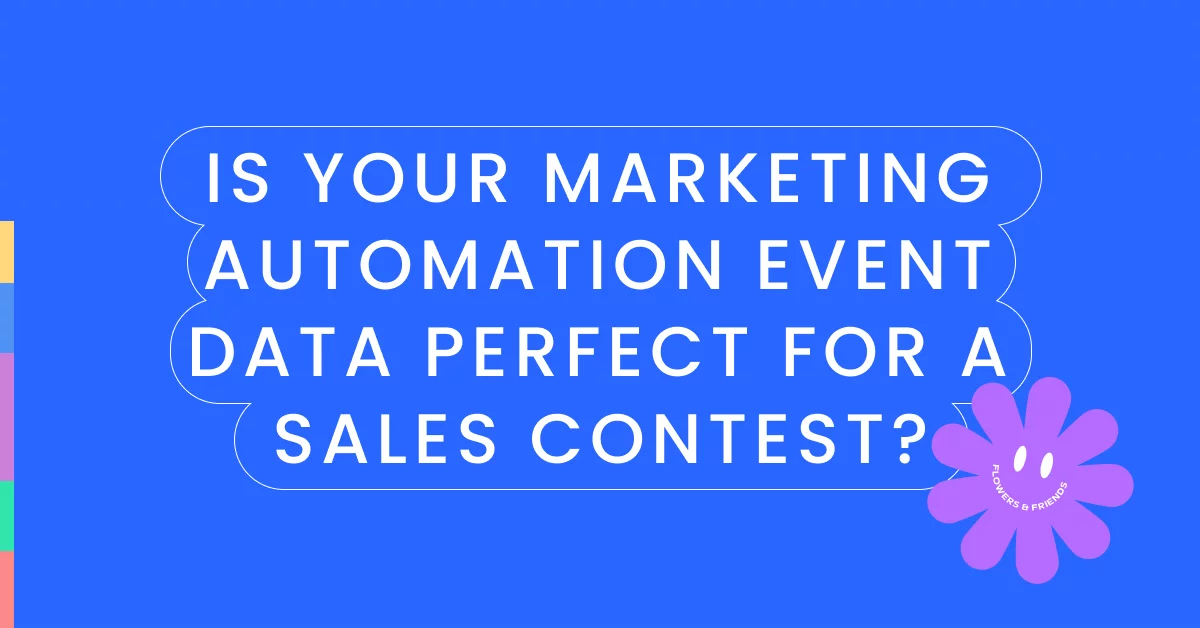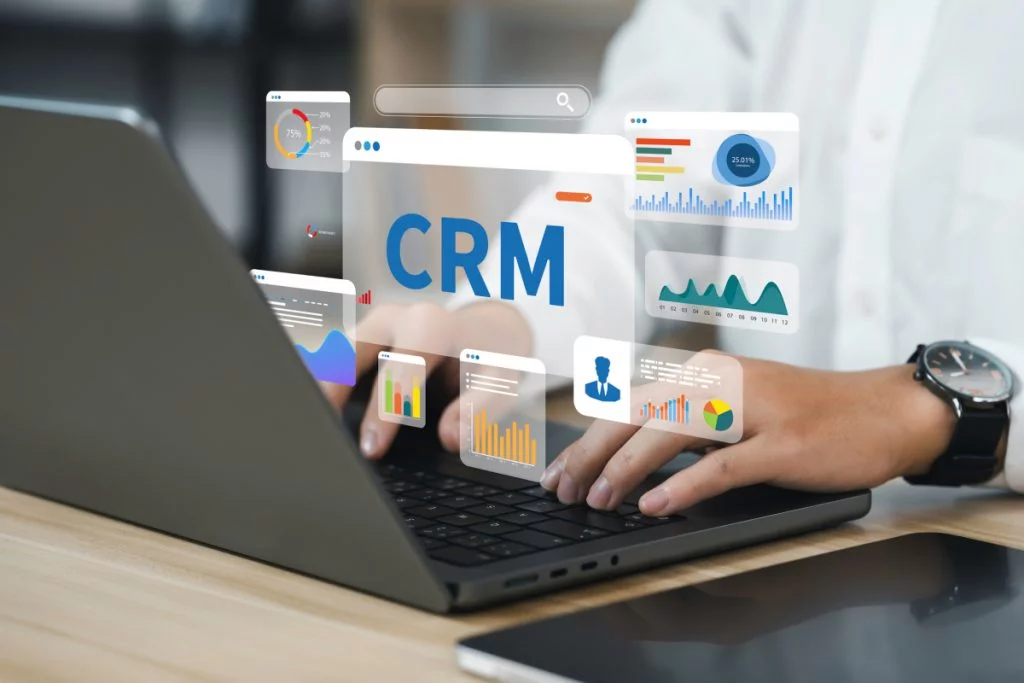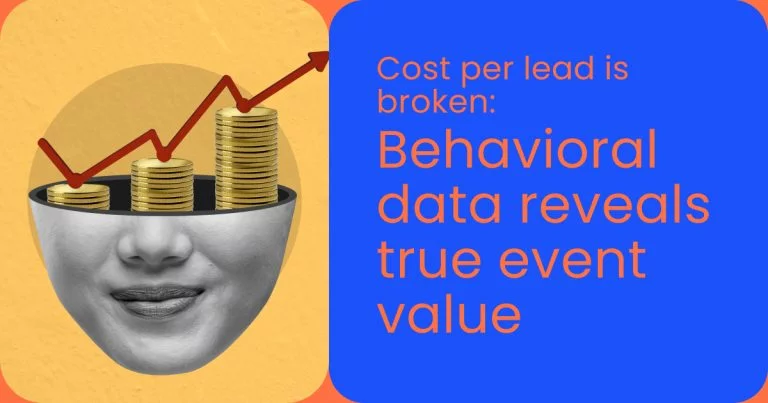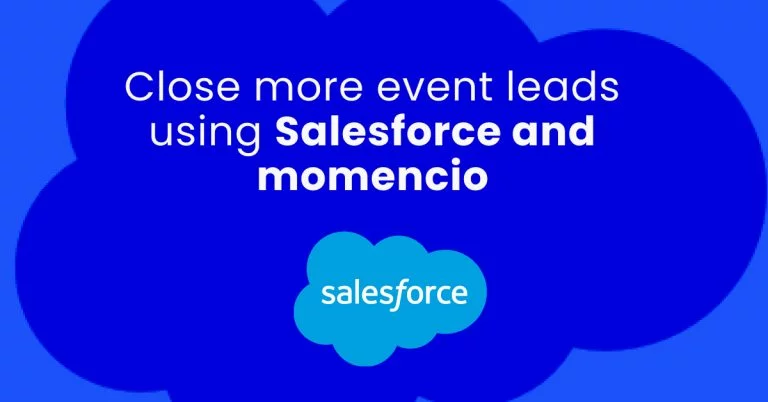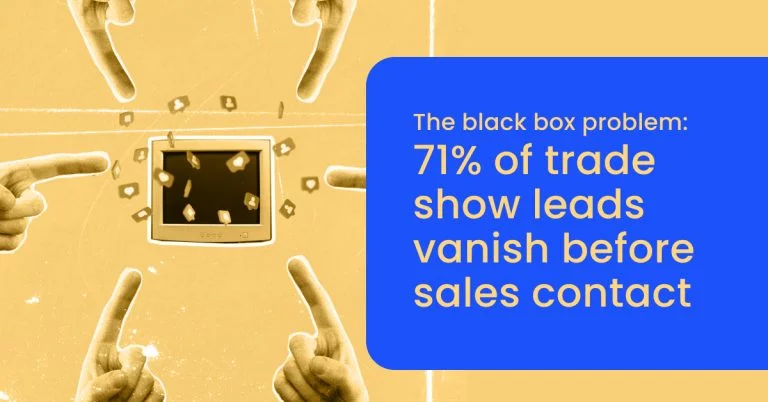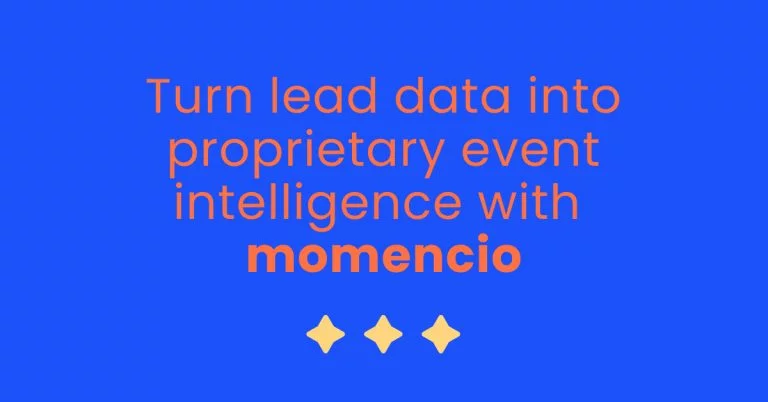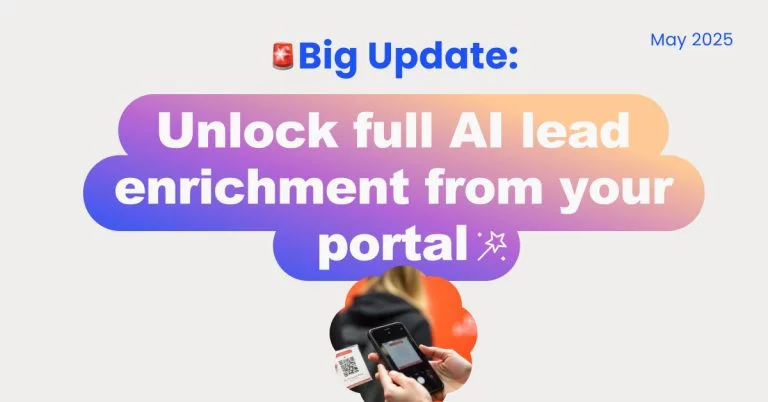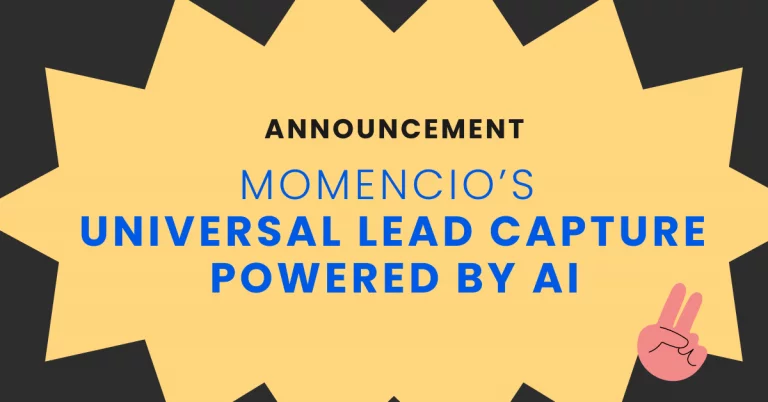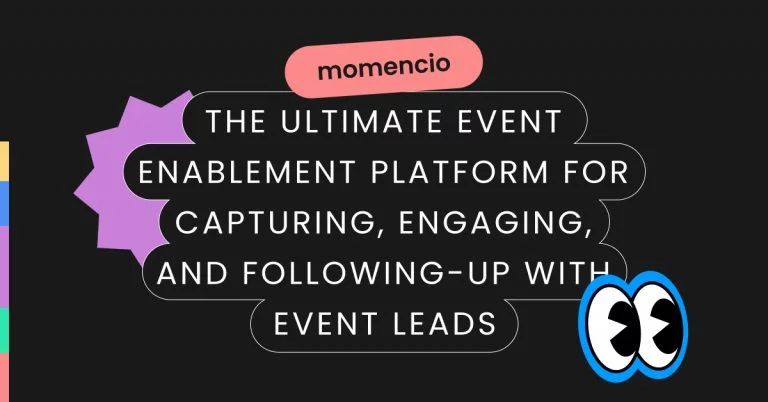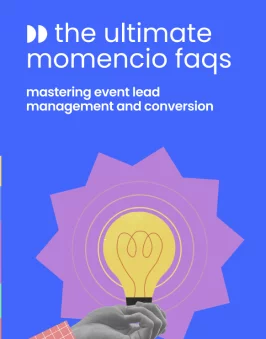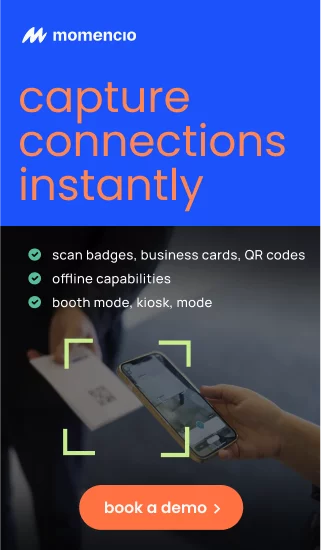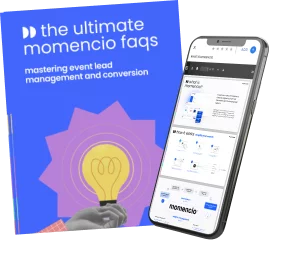A smartly designed sales contest uses marketing automation event data creatively, motivatingly, and industriously. Your marketing automation platform’s powerful capabilities can drive a return on investment after an event with creative collaboration between sales and marketing teams.
Below, we discuss how inter-team cooperation, marketing campaign dashboards, email automation, and A/B testing are the building blocks you didn’t know you needed to run a high-converting follow-up campaign after a marketing event.
TL;DR: Marketing automation powered by event data allows for personalized, timely follow-ups. Learn how to use attendee behavior data to automate email campaigns, segment leads, and drive better engagement, resulting in improved sales conversions and event ROI.
Is your marketing automation event data perfect for a sales contest?
The motivation for marketing and sales to collaborate
Following a marketing event, a smartly designed sales contest can optimize conversion by motivating sales and creatively leveraging marketing automation capabilities. Unfortunately, a simple barrier still impedes the implementation of this cross-team paradigm in 2018 in many organizations: collaboration rifts between sales and marketing.
Yet, consider everything sales and marketing stand to gain by collaborating:
- A marketing-fluent sales team with better insight into the full customer experience lifecycle
- Faster qualification of the best leads through the adoption of key lead-scoring metrics
- Saleswomen and men accelerate quota achievement by leveraging the data
- Opportunities for feedback from those who work with customers and outbound messaging daily
- Stronger relationships with colleagues
We have previously written about the perils and costs of sales-marketing miscommunication. It can result in as few as 2% of leads being contacted immediately (within one business day). It also leads to suffering event conversion rates and poor inter-team rapport.
Given that marketing automation event systems offer such rich information and integration with sales systems, collaboration is easier than ever. Let’s look at three ways marketing automation can be used to collaborate more interactively with sales to drive an event campaign’s follow-up actively.
1 – Monitor and showcase follow-up on a campaign dashboard
Every marketing automation platform worth its weight in salt has a visual reporting module. A good one. This is an excellent feature to leverage in tracking and sharing how the entire sales team is progressing in their follow-up.
Sales leadership should consider a special bonus if the entire team hits a broader goal, such as “all leads contacted within 48 hours of the convention with a personalized message.” This type of specific goal directly ties marketing goals to sales performance, positioning both sales and marketing in a win-win position by focusing on following up on the best leads from the event.
Marketing automation in your sales contest:
Configure the applicable sales team or teams as they relate to the larger campaign. We suggest setting multiple goals or sub-contests for teams as their progress specifically relates to marketing data. A few suggestions include:
- The team average of prospect microsite visits
- Number of qualified leads called per day by a team
- Percentage of leads with specified lead scores contacted in an hour by team
- The ratio of best-scoring leads contacted those who only stayed at the booth 2 minutes
Within many companies, teams may assume the forms of predefined geographic territories, market segments, event teams, or industry sectors. Depending on the size of your marketing and sales teams, you may wish to structure teams with a mix of sales and marketing professionals so each group has a marketing guru at their fingertips to bring the departments together.
2 – Run A/B marketing mini-experiments as sales sprint challenges
During the pitched excitement of a contest, employees should take frequent breaks to refresh. Why? Breaking up work leads to better performance. A growing collection of research discoveries in neuroscience show frequent, brief breaks are ideal.
But encouraging breaks isn’t just smart for sales. It’s also a golden opportunity to introduce something new into the structure of the sales contest itself.
Marketing automation in your sales contest:
- Break the follow-up campaign into 2-3 sprint challenges for A/B testing opportunities
- Use quantitative data from sprint 1 to drive testing in sprints 2 and 3
- Collect qualitative feedback from sales about the sprint challenges and what they might change to understand results in context and inform future mini-experiments
In addition to the data-driven pivots, marketing can make as a result of sprint challenges (mini-experiments), salespeople may heighten awareness, reduce boredom, better engage emotional and social intelligence, and boost memory. That might mean more productive prospecting conversations.
Note that incentives should be tied to these sprint challenges, which will require salespeople to try something new and possibly outside their comfort zone. A combination of financial incentives and public acknowledgment can go a long way in boosting the adoption of the challenge.
3 – Use email automation to “ring the bell”
Speaking of incentives and praise, you may be surprised to learn that acknowledgment is a strong reward that many employees report craving but not receiving as often as they crave it.
Contest incentives should be clear and simple, but they are not replacements for acknowledging performance on a human level. With all the available data about which salespeople are top performers, it’s easy to “ring the bell” digitally to celebrate accomplishments via the same marketing automation event follow-up campaign they’re using to achieve their quotas.
Marketing automation in your sales contest:
For example, sales leadership may assign basic weekly goals to a Junior Sales Associate. This might take the form of two calls per prospect per week for all prospects who visited the microsite sent as an instant follow-up at the event. If they achieved that goal, send the entire team a recap of that success!
Other marketing automation metrics are great for :
- Contacting all the hottest prospects (ex: highest email opens and clicks) within 8 hours
- Adding new opportunities for qualified leads
- Scheduling 150% of their quota for sales demos in any given week
How can you ensure collaboration between sales and marketing teams?
Collaboration between sales and marketing teams is often easier said than done. Misaligned goals, lack of communication, and siloed workflows can prevent these teams from working in harmony. Here are actionable steps to foster collaboration and maximize the use of marketing automation data:
- Establish shared goals: Set clear, measurable objectives that align both teams, such as increasing lead-to-opportunity conversion rates or boosting follow-up speed.
- Create a unified playbook: Develop a shared framework for how leads will be handled, scored, and followed up on. This reduces confusion and ensures consistency.
- Host regular syncs: Weekly or bi-weekly meetings to review progress, discuss challenges, and share feedback can bridge gaps and foster open communication.
- Use a centralized dashboard: Leverage marketing automation tools to provide real-time visibility into campaign performance, allowing both teams to track progress toward shared goals.
By taking these steps, businesses can break down silos and create a more cohesive, results-driven environment.
What types of sales contests work best for leveraging marketing automation data?
Choosing the right type of contest is critical to motivating your sales team while ensuring alignment with marketing objectives. Here are a few sales contest ideas tailored to marketing automation capabilities:
- Fastest response challenge: Reward sales reps who contact the highest number of qualified leads within a specific timeframe post-event.
- Content engagement push: Focus on leads who engaged with key marketing content (e.g., webinars, whitepapers) and reward reps for securing follow-ups with these leads.
- Top lead converter: Celebrate the sales rep who converts the highest number of leads with top-tier engagement scores.
- Territory or segment-based contest: Divide teams by territory or market segment and incentivize the group with the best overall performance metrics.
Each contest idea ties directly to the actionable data provided by your marketing automation platform, ensuring your contests drive meaningful results.
What are the challenges of using marketing automation in sales contests?
While marketing automation can enhance sales contests, it’s important to recognize and address potential challenges:
- Data overload: Too much data without proper filtering can overwhelm teams. Use dashboards to highlight the most critical metrics.
- Misaligned metrics: Ensure that contest goals align with meaningful outcomes like qualified lead conversion, not vanity metrics like sheer volume of calls.
- Inconsistent adoption: Sales teams may be hesitant to adopt new tools or processes. Provide training and emphasize the benefits of using marketing automation effectively.
- Time constraints: Running contests too quickly without proper planning can lead to rushed efforts and reduced quality in follow-ups. Space out contests strategically to balance urgency with effectiveness.
Overcoming these challenges involves clear communication, thoughtful planning, and ongoing support for your teams.
How can you use gamification to boost sales contest engagement?
Gamification transforms sales contests into engaging, competitive events that motivate participants. Here are some ideas to incorporate gamification into your contests:
- Leaderboards: Display real-time leaderboards to track contest progress and create a sense of competition among sales reps.
- Badges and rewards: Offer digital badges for milestones like “Fastest Responder” or “Top Converter” and reward top performers with gift cards or other incentives.
- Team-based challenges: Foster collaboration by grouping sales reps into teams and rewarding collective success, such as the highest average lead score conversion rate.
- Interactive dashboards: Use marketing automation platforms to create visual, gamified dashboards that showcase contest performance and highlight key achievements.
Gamification not only makes contests more enjoyable but also drives participation and encourages consistent effort throughout the campaign.
How can marketing automation improve long-term sales outcomes beyond contests?
Marketing automation’s value extends far beyond short-term contests. By embedding automation into your sales processes, you can achieve sustained improvements in efficiency and outcomes.
- Continuous lead nurturing: Automation ensures that lower-priority leads are nurtured with relevant content until they’re ready to engage with sales.
- Enhanced customer insights: Track interactions and behaviors over time to gain deeper insights into customer preferences and buying journeys.
- Scalable personalization: Use automation to deliver personalized experiences at scale, ensuring every lead feels valued.
- Data-driven iteration: Analyze contest performance data to refine future strategies and campaigns, improving results with every iteration.
By leveraging marketing automation for ongoing sales enablement, businesses can turn one-time contests into the foundation for sustained growth.
Conclusion
The marketing analytics available in 2018 make collaboration with sales more approachable than ever.
Using key performance indicators from marketing to set micro goals in a sales contest will benefit both teams as they move toward the finish line of their strategic goals together. Remember to reward your employees fairly and immediately, encourage a supportive environment, and help your team stay well-rested.
As you form your own sales contest, marketing automation event data is a wealth of information that can steer sales toward their best leads most quickly, inform team strategies for collaborative selling, and illuminate areas in which sales managers can coach their team members to benefit all marketing event conversion goals.
FAQs
- What Is the Significance of Inter-Team Collaboration in Post-Event Marketing?
- Collaboration between sales and marketing teams is crucial following a marketing event. It ensures a unified approach in using event data, leads to a better understanding of customer experiences, and accelerates lead qualification and conversion processes.
- How Can Marketing Automation Event Data Drive Post-Event ROI?
- Marketing automation event data provides rich insights into attendee behavior and preferences. This data can be used to tailor follow-up campaigns, making them more relevant and effective, thereby driving better ROI from the event.
- What Are Some Key Strategies for Using Marketing Automation Event Data?
- Key strategies include monitoring follow-up activities on campaign dashboards, employing email automation for efficient communication, and conducting A/B testing to refine marketing tactics based on real-time feedback and results.
- Why Is A/B Testing Important in Post-Event Marketing Campaigns?
- A/B testing is crucial as it allows teams to compare different strategies and understand what works best in engaging leads. It provides actionable insights that can enhance the effectiveness of follow-up campaigns.
- How Does Email Automation Contribute to the Success of Follow-Up Campaigns?
- Email automation streamlines the communication process, ensuring timely and personalized outreach to leads. It enables teams to effectively engage with a large number of attendees, providing relevant content that can lead to higher conversion rates.
